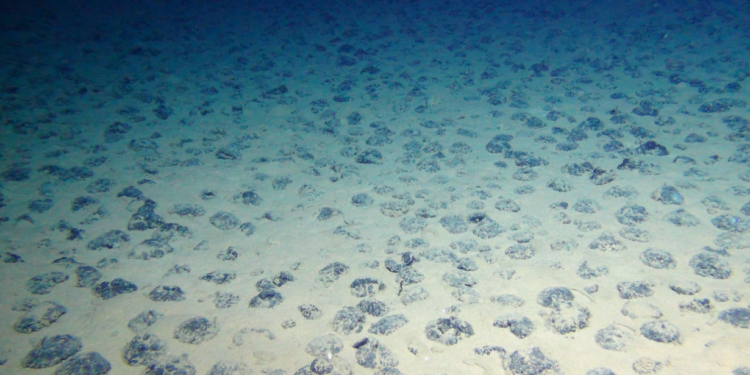After banning domestic short-haul flights and plastic packaging in the last two months, France continues to pioneer large-scale legislative changes in a bid to protect the environment. Last week, the French Parliament voted to ban deep-sea mining in its waters.
The resolution was endorsed by an absolute majority of parliamentarians, passing with a vote of 215 to 56.
Victoire historique. L'Assemblée Nationale demande l'interdiction de l'exploitation minière des fonds marins. La résolution que nous avions initiée et que le député @nthierry a déposée vient d'être adoptée à la majorité absolue. pic.twitter.com/87aAaXoTxJ
— CamilleEtienne (@CamilleEtienne_) January 17, 2023
French President Emmanuel Macron has expressed his opposition to the practice for some time, notably at COP27, where he urged member states to prevent marine mineral extraction and called for further research into deep-sea ecosystems.
Spain, Germany, New Zealand, Panama, Costa Rica and Chile are among other states who favour a moratorium on deep-sea mining.
What Is Deep Sea Mining, and Why Is It in the Spotlight?
While mining is generally associated with fossil fuels and, consequently, environmental deterioration, the prospect of deep-sea mining has actually emerged in relation to the green energy transition.
A lot of clean energy technology requires rare earth metals which need to be extracted from – as the name suggests – the earth. The minerals are required for both energy sourcing, such as magnets in wind turbines, and energy storage, as they’re used in most batteries.
As the manufacture of renewable energy technology increases, so does the demand for these metals. As a result, the mining industry is in search of abundant supply, and is looking for mineral supplies beyond the land – in the seabed.
What these companies are searching for are manganese nodules: potato-sized mineral concentrations that contain combinations of 37 metals that are essential components of the green technologies described above.
But fierce debate around the environmental safety of seabed mining has emerged given the lack of knowledge surrounding deep-sea ecosystems, and the extent of their vulnerability to mining.
Related Articles: New Year, New Ban: France Tackles Disposable Packaging | Seven ways new technology will impact the mining sector | The Dark Side of Ocean Mining: We Are Not Prepared
The discussion at hand has intensified in recent months as a Canadian company prepares to commence the first commercial deep-sea mining operation in the Pacific Ocean.
The Metal Company carried out an exploratory mission in late 2022. Under the international treaty which governs the sea bed, their commercial operation could be given the green light as early as spring 2023.
However, many scientists and environmentalists are calling for a delay in approval to allow more time for research and the informed development of regulations around deep-sea mining.
The Metal Company’s test run took place in the Clarion-Clipperton zone, an area between Mexico and Hawaii in the Pacific Ocean. This zone promises to be extremely lucrative for the rare earths industry as it is estimated to be 10 times richer in minerals than comparable on-shore deposits.
However, the Clarion-Clipperton zone is also an ecological “goldmine.” Despite being the most thoroughly studied deep-sea region, around 70%-90% of the organisms collected there are new discoveries.
Scientists continually stress this unfamiliarity that we have with the deep sea. The UN has said that mining “this unique and complex area of our planet would create irreversible ecosystem and habitat loss, as well as permanently destroy invaluable carbon storage.”
As the UN explains, it is due to “scientific uncertainty and potential devastating environmental impacts of deep-sea mineral extraction” that “there is no foreseeable way in which the financing of deep-sea mining activities can be viewed as consistent with the Sustainable Blue Economy Finance Principles.”
The Costs of the Green Energy Revolution
Transitioning to renewable energy may just be a double-edged sword. It is imperative that we revise how we power modern life, but is the environmental cost of “greening” the energy industry undeniable?
There is an argument to be made that the transition requires a short-term environmental cost for long-term environmental protection. But it is important to prevent irreversible and large-scale destruction of ecosystems in the name of growing the renewables industry.
France has taken environmental action which is far from symbolic, setting an example of true government-mandated impact. Its ban on deep-sea mining buys some time while further research is conducted. Will other countries do the same?
Editor’s Note: The opinions expressed here by the authors are their own, not those of Impakter.com — In the Featured Photo: Manganese nodules on the seabed of the Clarion-Clipperton zone. Featured Photo Credit: Geomar, Wikimedia Commons Libary.










